Quote Said to Be Inserted into Alex Haley Interview
Chideya Recalls MTV’s Mix of Pop Culture, News
Homepage photo credit: Malcolm X and Martin Luther King Jr., artist unknown.
[btnsx id=”5768″]
Donations are tax-deductible.
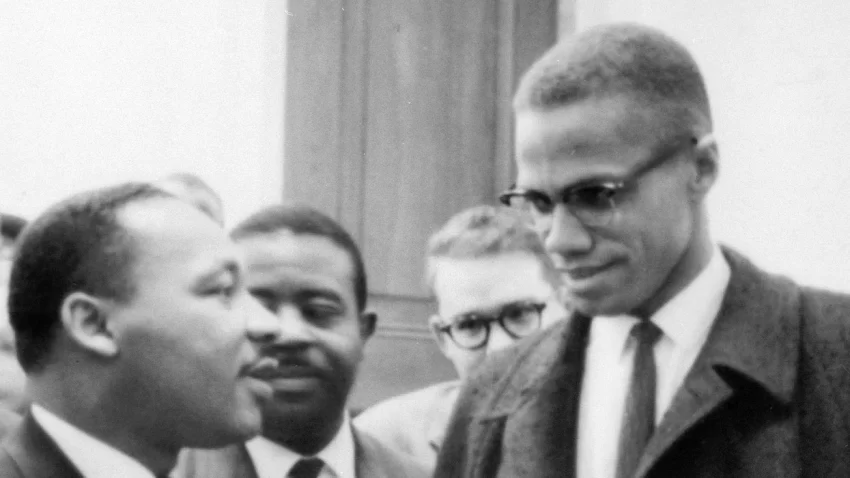
Quote Said to Be Inserted into Alex Haley Interview
“Jonathan Eig was deep in the Duke University archives researching his new biography of Martin Luther King Jr. when he made an alarming discovery: King’s harshest and most famous criticism of Malcolm X, in which he accused” Malcolm “of ‘fiery, demagogic oratory,’ appears to have been fabricated,” Gillian Brockell reported Wednesday for The Washington Post.
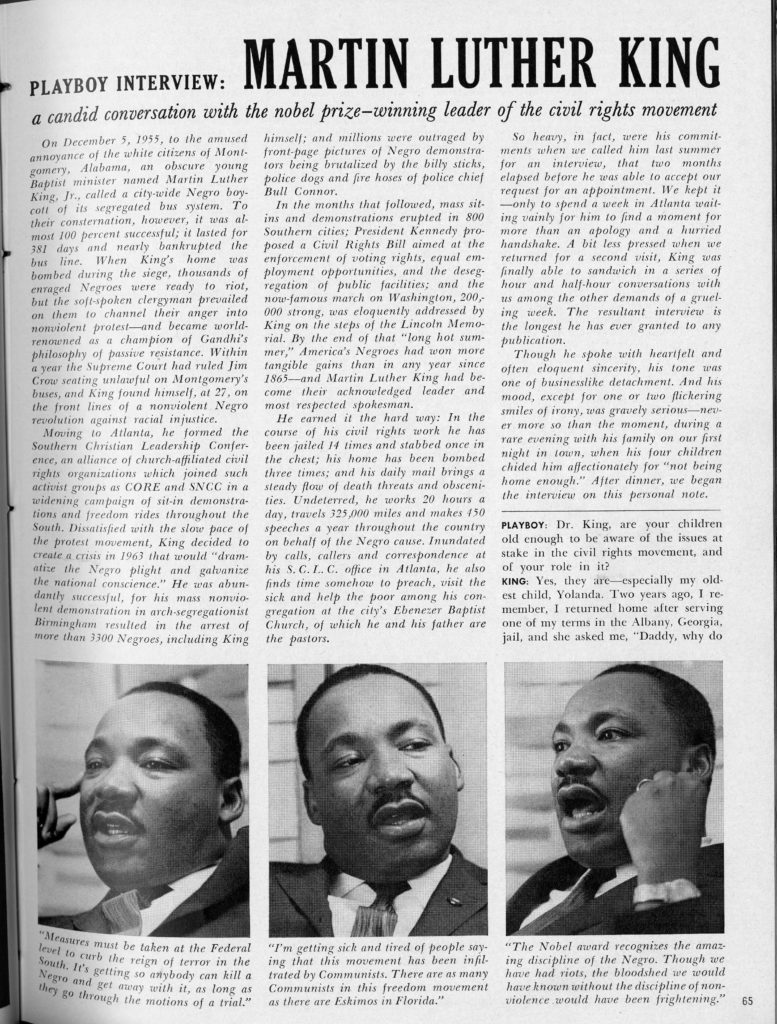 “ ‘I think its historic reverberations are huge,’ Eig told The Washington Post. ‘We’ve been teaching people for decades, for generations, that King had this harsh criticism of Malcolm X, and it’s just not true.’
“ ‘I think its historic reverberations are huge,’ Eig told The Washington Post. ‘We’ve been teaching people for decades, for generations, that King had this harsh criticism of Malcolm X, and it’s just not true.’
“The quote came from a January 1965 Playboy interview (pictured) with author Alex Haley, a then-43-year-old Black journalist, and was the longest published interview King ever did. Because of the severity of King’s criticism, it has been repeated countless times, cast as a dividing line between King and Malcolm X. The new revelation ‘shows that King was much more open-minded about Malcolm than we’ve tended to portray him,’ Eig said.
“Haley’s legacy has been tarnished by accusations of plagiarism and historical inaccuracy in his most famous book, ‘Roots,’ but this latest finding could open up more of his work to criticism, especially ‘The Autobiography of Malcolm X: As Told to Alex Haley’ — released nine months after Malcolm X’s assassination in 1965.
“Malcolm X, a member of the Nation of Islam, had frequently attacked King and his commitment to nonviolence, going so far as to call King a ‘modern Uncle Tom.’ But his criticism often had ‘strategic purposes,’ Eig said.
“In acting as ‘a foil’ to King, his message had more value to the media.’ ‘King saw value in being a foil to Malcolm sometimes, too. But I think at their core they had a lot in common. They certainly shared a lot of the same goals,’ Eig said. . . .”
 Eig (pictured), a former senior special writer for The Wall Street Journal “who previously wrote acclaimed biographies of Muhammad Ali and Lou Gehrig, said he found the fabrication in the course of his standard book research for ‘King: A Life,’ due out May 16. When a subject has given a long interview, he’ll look through the archives of the journalist who conducted it, hoping to find notes or tapes with previously unpublished anecdotes.
Eig (pictured), a former senior special writer for The Wall Street Journal “who previously wrote acclaimed biographies of Muhammad Ali and Lou Gehrig, said he found the fabrication in the course of his standard book research for ‘King: A Life,’ due out May 16. When a subject has given a long interview, he’ll look through the archives of the journalist who conducted it, hoping to find notes or tapes with previously unpublished anecdotes.
“He did not find a recording of Haley’s interview with King in the Haley archives at Duke, but he did find what appears to be an unedited transcript of the full interview, likely typed by a secretary straight from a recording, Eig said. Eig provided The Post with a copy of the transcript.
“On page 60 of the 84-page document, Haley asks, ‘Dr. King, would you care to comment upon the articulate former Black Muslim, Malcolm X?’
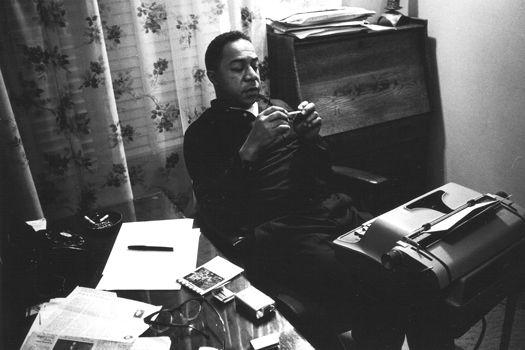
“King responds: ‘I have met Malcolm X, but circumstances didn’t enable me to talk with him for more than a minute. I totally disagree with many of his political and philosophical views, as I understand them. He is very articulate, as you say. I don’t want to seem to sound as if I feel so self-righteous, or absolutist, that I think I have the only truth, the only way. Maybe he does have some of the answer. But I know that I have so often felt that I wished that he would talk less of violence, because I don’t think that violence can solve our problem. And in his litany of expressing the despair of the Negro, without offering a positive, creative approach, I think that he falls into a rut sometimes.’
 “That is not how King’s response appeared in the published interview. While the top part is nearly identical with the transcript, it ended in Playboy like this: ‘And in his litany of articulating the despair of the Negro without offering any positive, creative alternative, I feel that Malcolm has done himself and our people a great disservice. Fiery, demagogic oratory in the black ghettos, urging Negroes to arm themselves and prepare to engage in violence, as he has done, can reap nothing but grief.’ (Photo credit: Farrar, Straus & Giroux)
“That is not how King’s response appeared in the published interview. While the top part is nearly identical with the transcript, it ended in Playboy like this: ‘And in his litany of articulating the despair of the Negro without offering any positive, creative alternative, I feel that Malcolm has done himself and our people a great disservice. Fiery, demagogic oratory in the black ghettos, urging Negroes to arm themselves and prepare to engage in violence, as he has done, can reap nothing but grief.’ (Photo credit: Farrar, Straus & Giroux)
“Some of the phrases added to King’s answer appear to be taken significantly out of context, while others appear to be fabricated. . . .
“It is a standard practice in journalism when publishing Q&A-style interviews to make minor changes, such as removing excessive ‘ums’ or truncating long answers where the subject repeats their point over and over again or wanders from the topic at hand. But journalists typically take great pains to ensure any changes do not alter the intended meaning of an interviewee’s response. In addition, outlets commonly will include an editor’s note informing the reader of such changes.
“What Haley appears to have done amounts to ‘journalistic malpractice,’ Eig said. . . .”
- Gillian Brockell, Washington Post: With MLK and Malcolm X revelations, Alex Haley’s legacy takes new hit (May 13)

Chideya Recalls MTV’s Mix of Pop Culture, News
“Thirty-six years after MTV News was created to expand the stable of programming that defined the cable channel MTV, it is no more, Alex Weprin reported Tuesday for the Hollywood Reporter.
“MTV News was shuttered this week as part of larger layoffs at parent company Paramount Global.
“What launched as a single show in 1987 (The Week in Rock, led by correspondent Kurt Loder) eventually became a bona fide news outlet for Gen X and older millennials who found that traditional TV programming on the broadcast networks and CNN wasn’t cutting it.
“Correspondents like Loder, Tabitha Soren, SuChin Pak, Gideon Yago, Alison Stewart and others covered music, pop culture, politics and other topics with an eye toward the younger generation that was tuned to MTV, rather than the network evening newscasts. . . .”
Farai Chideya (pictured below), author, academic, one-time philanthropist whose “Our Body Politic” radio show and podcast is picked up by more than 200 stations, is an MTV News veteran.
 “I worked at MTV News in the mid-90s, after starting my career at Newsweek,” she messaged Journal-isms Wednesday. “I wanted to try something new and work with people my age. But by the time I got to MTV News, I had a more traditional idea of what ‘news’ was than they did. I remember the State of the Union came around, and I asked what we would be doing. The answer: nothing! It was viewed as irrelevant to our demo. I made the case and we did cover it.
“I worked at MTV News in the mid-90s, after starting my career at Newsweek,” she messaged Journal-isms Wednesday. “I wanted to try something new and work with people my age. But by the time I got to MTV News, I had a more traditional idea of what ‘news’ was than they did. I remember the State of the Union came around, and I asked what we would be doing. The answer: nothing! It was viewed as irrelevant to our demo. I made the case and we did cover it.
“Madonna played our holiday party one winter. I produced a live feed from the balcony DJ setup for Grandmaster Flash, and have a photo perched on his lap. Yes, those were the days! It was very fun and sometimes kinda silly; and occasionally stressful (trying to chase around celebs like Biggie to get them on camera when they were more interested in hanging with their boys….).
“Overall, it was a meaningful experience and I learned a lot from trying to mix pop culture and news, as I did in different ways while writing for Vibe and Spin.
“Today, the prominence of social media influencers who are celebrities themselves or have access to celebrities has changed the game. No one needs MTV News to tell them what musicians think about politics. But I think that MTV’s impact includes not only the interviews they did, but also activations around things like the Motor Voter bill, to get young people more engaged in our political system.”
- Seth Abramovitch, Hollywood Reporter: “It Was Lightning in a Bottle”: An Oral History of MTV News (May 11)
Pulitzers Illustrate Many Facets of Race, Class
May 8, 2023
Awards Encompass the History of America
Homepage photo: Mckenzie Trahan, subject of Pulitzer Prize-winning photos by Cristina House/Los Angeles Times
[btnsx id=”5768″]
Donations are tax-deductible.

Awards Encompass the History of America
Robert Samuels, who joined The New Yorker from The Washington Post in January, tweeted Friday, “This week, I went to NYC to receive an honor for our book, ‘His Name is George Floyd.’ The same week, on a train line not too far away, a Black man named Jordan Neely was choked to death. It makes my head spin trying to reconcile these two things.”
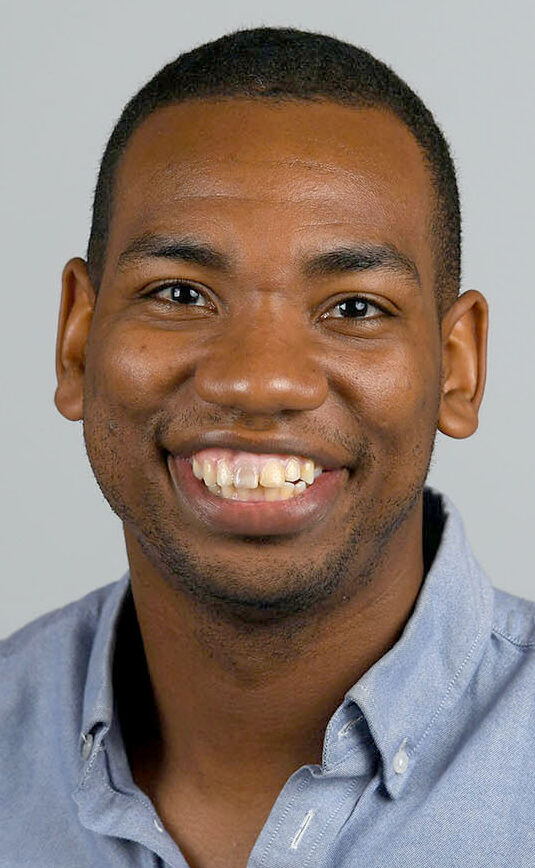 On Monday, Samuels (pictured) and his co-author Toluse Olorunnipa won the Pulitzer Prize in the books category for general nonfiction. It was a livestreamed ceremony that illustrated the many facets of racism and classism, but also how journalists of color can excel in supervising coverage of topics that at first glance are not related to race.
On Monday, Samuels (pictured) and his co-author Toluse Olorunnipa won the Pulitzer Prize in the books category for general nonfiction. It was a livestreamed ceremony that illustrated the many facets of racism and classism, but also how journalists of color can excel in supervising coverage of topics that at first glance are not related to race.
“There is something specifically terrifying about snuffing a life in such a way,” Samuels’ series of tweets continued. “Our reporting showed [its] slow, physical gruesomeness. Our American history illustrates its historical brutality. Our hearts can sense the inhumanity of it all.
“And yet, here we are again, watching another American horror and questioning the victim’s arrest background as if we can find a way to justify this particular form of death. It is easy to view these incidents with a shrug and sigh. Have we learned nothing in these past 3 years?”
 The same question could be asked about other winning subjects, which encompassed the history of America. For al.com, “Columnist Kyle Whitmire (pictured) won the 2023 Pulitzer Prize in Commentary for the series State of Denial. Throughout 2022, Whitmire explored larger questions: What made Alabama the way it is and why can’t the state snap out of it? State of Denial seeks to show how 150 years of whitewashed history and a rigged political system have left the state stunted,” al.com summarized Monday.
The same question could be asked about other winning subjects, which encompassed the history of America. For al.com, “Columnist Kyle Whitmire (pictured) won the 2023 Pulitzer Prize in Commentary for the series State of Denial. Throughout 2022, Whitmire explored larger questions: What made Alabama the way it is and why can’t the state snap out of it? State of Denial seeks to show how 150 years of whitewashed history and a rigged political system have left the state stunted,” al.com summarized Monday.
The Los Angeles Times won in the breaking news category for “for a series of stories on a secret audio recording that exposed Los Angeles City Council members scheming in a crass and racist bull session about political power in the city.” Political rivalries between African Americans and Latinos were center stage.
Cree journalist Connie Walker of the Okanese First Nation in Saskatchewan, was a guest on “Face to Face” from APTN National News. She was discussing her 2021 podcast, “Stolen: The Search for Jermain.” (Credit: APTN National News/YouTube)
The winner in audio recording was the staff of Gimlet Media, notably Connie Walker. Her “investigation into her father’s troubled past revealed a larger story of abuse of hundreds of Indigenous children at an Indian residential school in Canada, including other members of Walker’s extended family, a personal search for answers expertly blended with rigorous investigative reporting,” the Pulitzer organization said.
 Caitlin Dickerson (pictured) of The Atlantic won the prize for explanatory writing for her “deeply reported and compelling accounting of the Trump administration policy that forcefully separated migrant children from their parents, resulting in abuses that have persisted under the current administration.”
Caitlin Dickerson (pictured) of The Atlantic won the prize for explanatory writing for her “deeply reported and compelling accounting of the Trump administration policy that forcefully separated migrant children from their parents, resulting in abuses that have persisted under the current administration.”
Dickerson’s win is significant for another reason, investigative reporter Corey G. Johnson, a 2022 Pulitzer winner and 2023 explanatory-reporting juror, messaged Journal-isms Tuesday. Dickerson “became the first ever African American individual winner in the hard news categories. No Black male or female had ever been the sole-byline honoree in Explanatory Reporting, Breaking News, Local Reporting, Investigative Reporting, National Reporting or International Reporting until yesterday. However, there was a Nigerian born journalist, Dele Olojede, who won in the International category in 2005 when he worked for Newsday.
“Black journalists have been worthy and supremely talented but the politics of newsrooms often meant their work didn’t get submitted or their individual stories were packaged as part of larger team and they were forced to share credit. Where there have been exceptions, it has been in the Features, Commentary, Criticism and in the Arts and Letters related categories. Not hard news.”
The book prize in the history category went to Jefferson Cowie, who wrote “Freedom’s Dominion: A Saga of White Resistance to Federal Power.” Cowie’s website reads, “A prize winning historian chronicles a sinister idea of freedom: white Americans’ freedom to oppress others and their fight against the government that got in their way.
“American freedom is typically associated with the fight of the oppressed for a better world. But for centuries, whenever the federal government intervened on behalf of nonwhite people, many white Americans fought back in the name of freedom — their freedom to dominate others.”

“Omar,” by Rhiannon Giddens and Michael Abels, won in the music category. It is described as “an innovative and compelling opera about enslaved people brought to North America from Muslim countries, a musical work that respectfully represents African as well as African American traditions, expanding the language of the operatic form while conveying the humanity of those condemned to bondage.”
The top issues of the year, particularly the war in Ukraine and the sagas of immigrants and migrants, were well represented. Gender issues were acknowledged as Andrea Long Chu, book critic for New York magazine, won for criticism. Chu’s book “Females” had been a finalist for the 2019 Lambda Literary Award in Transgender Nonfiction.
The Pulitzer for public service went to the Associated Press for “courageous reporting from the besieged city of Mariupol that bore witness to the slaughter of civilians in Russia’s invasion of Ukraine.”
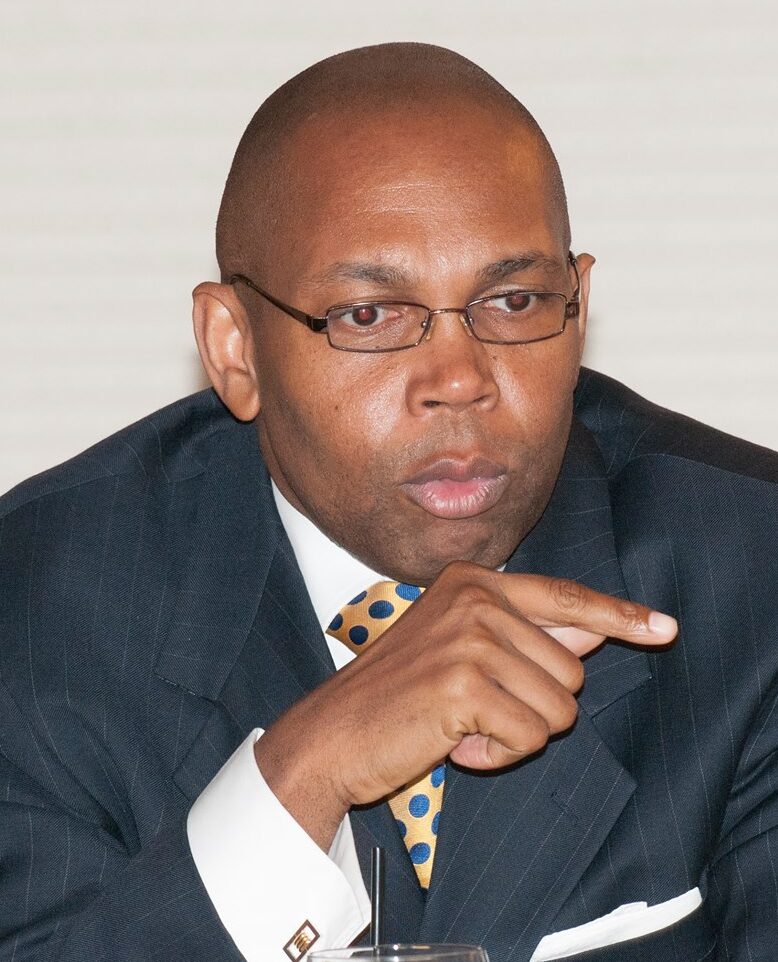 The awards named Mstyslav Chernov, Evgeniy Maloletka, Vasilisa Stepanenko, all Ukrainians, and Lori Hinnant, but helping to guide their reporting was Ron Nixon (pictured), the AP’s vice president, news and head of investigations, enterprise, partnerships and grants and a Black journalist.
The awards named Mstyslav Chernov, Evgeniy Maloletka, Vasilisa Stepanenko, all Ukrainians, and Lori Hinnant, but helping to guide their reporting was Ron Nixon (pictured), the AP’s vice president, news and head of investigations, enterprise, partnerships and grants and a Black journalist.
“The only international journalists remaining in Mariupol . . . documented the horrors of Russia’s occupation, including mass graves, dying children and the shelling of a maternity hospital, living under constant bombardment until their harrowing escape,” the news cooperative said. “Cut off from electricity and communication, the AP team moved throughout the city searching for the faintest of signals to transmit reporting.
“The team’s work saved thousands of lives, according to the deputy mayor of Mariupol, who said the atrocities exposed by AP led to a push for humanitarian corridors and allowed mass evacuations. Their reporting was instrumental in combatting misinformation about the war.”
 Nancy Ancrum (pictured), another Black journalist, led her editorial-page team at the Miami Herald to win the editorial writing category for “a series of editorials on the failure of Florida public officials to deliver on many taxpayer-funded amenities and services promised to residents over decades.”
Nancy Ancrum (pictured), another Black journalist, led her editorial-page team at the Miami Herald to win the editorial writing category for “a series of editorials on the failure of Florida public officials to deliver on many taxpayer-funded amenities and services promised to residents over decades.”
“The Pulitzer for editorial writing recognized ‘Broken Promises’ a series that focused on vows from the powerful — politicians and developers — to build parks, revive historic but struggling neighborhoods and boost transportation,” Jeff Kleinman wrote for the Herald. “The series showed how voters were let down over and over again in South Florida. ‘This honor affirms the obvious: Opinion journalism is vital,’ ” Ancrum was quoted as saying. “Opinion journalism holds the powerful to account. Opinion journalism forces things to change — for the better.”
The Los Angeles Times, where Kevin Merida, another Black journalist, is executive editor, won two Pulitzers. They “reflect careful, sophisticated, nuanced reporting and photography on complex topics important to Angelenos: power, representation, race relations, homelessness,” Merida said in the Times’ story.

As Times reporter James Rainey recalled, “Los Angeles City Council President Nury Martinez made cruel and racist remarks as she and fellow city lawmakers Kevin de Leon and Gilbert Cedillo discussed how they and other Latino politicians would solidify their positions. . . . The revelation triggered a wave of indignation and calls for Martinez and the other council members to resign. In less than a week, the powerful council president had been forced to resign. Cedillo left the council at the end of his term, while demands for De Leon’s resignation continue to this day. . . .”
The Times’ second Pulitzer Monday was a feature photography award to Cristina House for her “deeply empathetic images of a young woman living alongside the Hollywood Freeway while coping with drug issues and the birth of a child.” Homelessness disproportionately affects people of color, and the subject also earned the feature writing Pulitzer for Eli Saslow of The Washington Post, for “evocative individual narratives about people struggling with the pandemic, homelessness, addiction and inequality that collectively form a sharply-observed portrait of contemporary America.”
Like George Floyd, the homelessness issue also connects to last week’s choking death of the unhoused Neely on the New York subway.
“Saslow’s standard practice is to embed with his subjects for days at a time to closely observe their lives,” Elahe Izadi wrote in the Post. “For one story, he fixed on the tensions erupting within mass transit systems. He initially spent several days interviewing Philadelphia train conductors and poring over incident reports from across the country. Then he interviewed more than a dozen bus drivers in Denver before he decided to focus on Suna Karabay, accompanying her on her bus route.
“For another story, Saslow shadowed a billionaire grappling with the morality of being so rich at a time of stark economic disparities. ‘I spend more time on the other side of that’ divide, Saslow said. ‘But I think it’s really important in journalism to always try to cover everybody.’ ”
- Roy J. Harris Jr., Poynter Institute: Pulitzer preview: From Ukraine to Uvalde, Monday’s winners likely will recall 2022’s biggest shocks (May 3)
- Journal-isms: Tell It! Report the Story of Systemic Racism (June 18, 2022)
- Journal-isms: Why Journalists Really Do Matter (May 26, 2022)
- Jose R. Lopez, Pulitzer Prizes: The 2023 Pulitzer Prizes: Behind the Scenes (photos)
- Kathleen McElroy, Poynter Institute: The Pulitzer goes to … Black introspection (May 5)
Finger-Pointing After Subway Choking Death
May 7, 2023
Media, Public Attitudes, Indifference Share Blame
Fulwood Said to Be Out as Dean at American U.
Many Ex-British Subjects Apathetic on Coronation
‘Latino USA’ Tells Inside Story of Its 30 Years
Latino Journalists to Be ‘Brown and Bougie’ Again
Ex-Anchor Says She Regrets Advice She Gave Carroll
Reporters Tell of Agonizing Decisions to Flee Sudan
Short Takes: “PBS NewsHour’s” upbeat story; Corky Lee; Kimberly Johnson; Richard Liu; Gary C. Wordlaw; Laura Coates; billion-dollar contractors and diversity data; Oakland A’s announcer and n-word; Field Negro, Google and n-word; WNYC, religion, Clarence Thomas-Malcolm X connection; Latino Media Network; Dominican Republic reporter and Pegasus spyware; press freedom violations in Burkina Faso and Mali; violent year for press freedom in Latin America; warning on press freedom from U.N. chief
Homepage photo: Kayla Epstein/BBC News
[btnsx id=”5768″]
Donations are tax-deductible.
WHAS-TV in Louisville, Ky., reports on the killing of Jordan Neely by fellow subway passenger Daniel Penny, who held Neely in a chokehold for several minutes, according to police. (Credit: YouTube)
Media, Public Attitudes, Indifference Share Blame
The choking death of the homeless, Black and mentally ill Jordan Neely on a New York subway Monday has provided the news media with plenty of angles with which to frame the tragedy. Not least is the role of the media itself.
Is the issue homelessness? Vigilantism? Crime? Racism? Media sensationalism? The polarization of our politics? All of the above?
We know what we do because a freelance journalist who found himself on the fateful subway car recorded a four-minute video of the incident. But even he has second thoughts about the media. A Mexican immigrant, the freelancer told Paula Aceves of New York magazine:
“I regret giving my name to the New York Post, because from then on, there was all this persecution by the media,” Juan Alberto Vazquez (also rendered as Vascez) said. “I mean, I should have given them the interview but without my name. Now it’s too late. They already know who I am. People have even come and knocked on my door.”
Vazquez also said, “Why get involved in something that could cause problems with your immigration status? You know that here in the U.S., if you so much as miss a stop sign, it could become a reason to be deported or not granted a permit. . . .”

Emma G. Fitzsimmons and Maria Cramer summarized what took place for The New York Times Thursday:
On the F train in Manhattan on Monday, “Mr. Neely, a subway performer and dancer who also had a history of mental illness and erratic behavior, had been yelling at passengers, saying he was hungry and thirsty, but also at one point that he was ready to die, according to one witness.
“There is no indication that he was violent or that he made any direct threats.
“But one of the train’s riders, a former marine who has not been identified by officials, approached Mr. Neely, put him in a chokehold, and held him until he became limp.
“It does not appear that any riders intervened to help Mr. Neely; at least two other riders appeared to help pin him down. [Christina Carrega reported for Capital B, “Neely is initially positioned on his back and on top of the man who is choking him as two bystanders — a Black man and white man — assist with the takedown, according to the video observed by Capital B.”]
“Mr. Neely was later pronounced dead at a hospital in Greenwich Village. Law enforcement officials are still investigating the incident and have not yet decided whether to charge the man,” Fitzsimmons and Cramer continued.
The former Marine has since been identified as Daniel Penny, 24, who is white.
In New York magazine Saturday, New York political reporter Errol Louis quoted City Council Speaker Adrienne Adams, who issued a statement “that came closest to identifying the core issue of Neely’s death. ‘Racism that continues to permeate throughout our society allows for a level of dehumanization that denies Black people from being recognized as victims when subjected to acts of violence,’ she said. ‘Everyone in our city and nation should be reflecting on what this incident represents and says about us.’ ”
Louis also wrote, “Readers of a certain age will recall that Bernhard Goetz was acquitted by a jury of assault and attempted murder for firing at teenagers who, however threatening they might have seemed, never touched him.” Goetz is white, his victims Black. The incident took place in 1984.

(Credit: Juan Vazquez)
Under the headline “Making People Uncomfortable Can Now Get You Killed,” Roxane Gay wrote Thursday in the Times, “There is no patience for simple mistakes or room for addressing how bigotry colors even the most innocuous interactions. There is no regard for due process. People who deem themselves judge, jury and executioner walk among us, and we have no real way of knowing when they will turn on us.”
Gay added, “News reports keep saying Mr. Neely died, which is a passive thing. We die of old age. We die in a car accident. We die from disease. When someone holds us in a chokehold for several minutes, something far worse has occurred.”
A letter writer to the Times, Jeremy Rosen of Queens, N.Y., was more direct. “The media and politicians have raised people’s anxieties and put them needlessly on edge. That led to Mr. Neely’s death.”
It is true that the Daily News sends out anxiety-raising news alerts daily that nearly always seem to report another crime. And politicians of the Republican variety are fond of singling out Democrat-led New York as a hotbed of wrongdoing, though its crime rate is lower than that of many other large American cities.

The New York Post editorial page sought to divert attention to systemwide failures. “Oh, the left is fine with spending money in the name of mental health, as with the billion or so Mayor Bill de Blasio blew on his wife’s farcical ThriveNYC debacle,” it wrote of a city mental health initiative.
“Facing facts about the growing ranks of the severely mentally ill (an estimated 12,000 on the streets) is somehow taboo.
“Nope: The left wants to focus exclusively on scapegoating the ‘vigilante,’ rather the system that failed Neely.”
Family members agree that the system failed, though obviously not bestowing hero status on Penny, as some have done.
Neely’s aunt, Carolyn Neely, told the Post that her nephew became a “complete mess” following the brutal murder of his mother in 2007. She noted that Neely, 30, was schizophrenic while suffering from PTSD and depression.
“The whole system just failed him. He fell through the cracks of the system,” she said.
The Post described Neely as “unhinged,” which offended some. Capital B’s Carrega quoted Celina Trowell, a homelessness union organizer with Voices Of Community Activists & Leaders (VOCAL-NY).
“Why is it that the police were on site, and even in the midst of seeing someone potentially losing their life, did not have that man in cuffs? And the amount of people that helped to restrain — I couldn’t imagine that story being the same if that was a white man restrained by a Black man,” Trowell said. “But it’s horrific to see people self deputized — that goes back to what I was saying about how irresponsible this Black mayor that’s a cop nonetheless can be so reckless with his words.” Mayor Eric Adams, a former transit policeman, said it was too early to pass judgment.
 Carrega continued, “A local news outlet described Neely as ‘unhinged’ and the person who recorded the video saw the aggressor’s actions as heroic. Classifying the homeless or anyone experiencing a mental health crisis with words such as unhinged and deranged further dehumanizes and gives the public a reason to believe that the victim deserved what happened to them.”
Carrega continued, “A local news outlet described Neely as ‘unhinged’ and the person who recorded the video saw the aggressor’s actions as heroic. Classifying the homeless or anyone experiencing a mental health crisis with words such as unhinged and deranged further dehumanizes and gives the public a reason to believe that the victim deserved what happened to them.”
Others have complained that the tabloids are giving more attention to Neely’s past than to Penny’s.
A consensus seems to be building around the need for better care for the mentally ill and the unhoused. “We are living through a vicious campaign of demonization and hostility toward the homeless,” Jamelle Bouie wrote Saturday for the Times. “Networks like Fox News show endless videos of attacks by homeless people that present them as inherently unstable, violent and dangerous. Prominent voices speak of sweeping homeless people from the streets like trash, and cities have tasked the police with using force to solve the problem.”
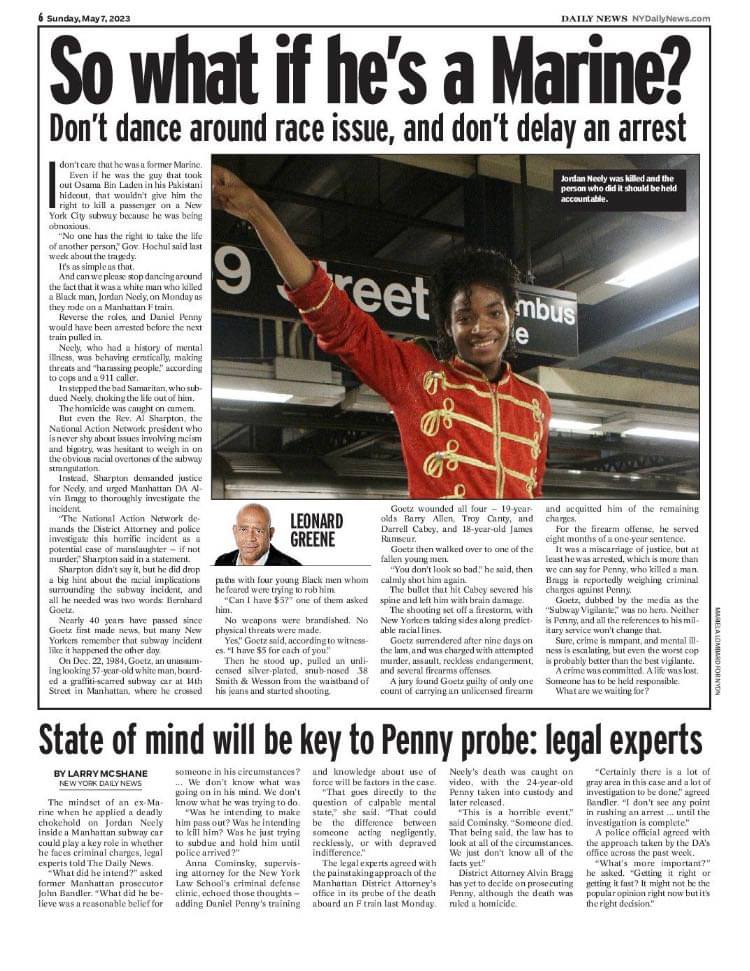 Theresa Vargas wrote Saturday for the Washington Post, “In D.C. last year, more than 70 people died while homeless. Some of the causes: intoxication, hypothermia and homicide. The youngest person who died was 30. Others who died were 31, 32, 36, 41 and 45. The average age was 55.
Theresa Vargas wrote Saturday for the Washington Post, “In D.C. last year, more than 70 people died while homeless. Some of the causes: intoxication, hypothermia and homicide. The youngest person who died was 30. Others who died were 31, 32, 36, 41 and 45. The average age was 55.
“Those ages appeared on a list shared by advocates who hold a vigil every year for the people who die in the city ‘without the dignity of a home.’ When those advocates took a deep look at the lives behind those numbers, they found that most of those people died while waiting to use housing vouchers and that the losses didn’t fall evenly across racial lines. Nearly 85 percent of the people who died in the city last year without housing were Black.
“None of those individuals were held in a chokehold on a train. But make no mistake, they died because they were homeless. They died because officials have shown time and again that they are more interested in trying to push people who are unhoused out of sight than pull them out of homelessness and the dangers that come with it.”
- Zeeshan Aleem, MSNBC: The New York subway death is a symptom of a bigger problem: A deadly incident on the New York subway exposes the danger of stigma against homeless people.
- Liz Courquet-Lesaulnier, Word In Black: Jordan Neely: From Michael Jackson Impersonator to Hashtag
- Elva Diaz, Arizona Republic: It shouldn’t take this long to address the root causes of homelessness in Phoenix
- Renee Graham, Boston Globe: A Black man desperate for help instead finds death on a N.Y. subway
- Courtney Hagle, Media Matters for America: Fox News zeroes in on a new target: the homeless (June 4, 2019)
- Ally Jarmanning, WBUR Boston, A Black 9-year-old was handcuffed in his classroom, Walpole family says
- Journal-isms: Are Journalists Too Far Removed to Relate to Homelessness? (May 20, 2020)
- Jay Caspian Kang, New Yorker: Jordan Neely’s Death and a Critical Moment in the Homelessness Crisis
- Andrea Marks, Rolling Stone: Jordan Neely Subway Killing a ‘Wake-Up Call for More Compassion’
- Melissa Noel, Essence: Community Outrage Grows After Chokehold Death Of Jordan Neely On NYC Subway
Sam Fulwood III introduces himself to American University as dean of the School of Communication on May 17, 2021. Peter Starr, acting provost and chief academic officer, said of Fulwood then, “His nationally and internationally recognized work addresses some of the greatest issues of our time.” (Credit: YouTube)
Fulwood Said to Be Out as Dean at American U.
Sam Fulwood III, a veteran journalist who in 2021 was named the first Black dean of American University’s School of Communication (scroll down), is being fired,” longtime professor John Watson messaged fellow faculty members Saturday night.
[May 8 update: Watson wrote colleagues Monday: “I am no longer questioning or challenging the dismissal of Dean Sam Fulwood. Based on highly credible information I received this morning, I am entirely reversing my position except that I still want the university to commission a full investigation.” He did not outline the new information.]
“It’s no coincidence that this is happening as everyone is rushing to end the semester and begin the summer break, wrote Watson, a member of the search committee that brought Fulwood to the school. “Arranging a protest would be impossible. It wouldn’t matter anyway. History has shown that no such action by the provost and president has ever been reversed.
“We, the faculty have some responsibility for this. I too, am culpable. I believe that for 25 years I have functioned as a Judas goat leading people here. I will atone for that.”
Fulwood messaged Sunday, “On advice of counsel, I don’t have anything to say at the moment.”
The university’s media relations department, responding to an inquiry Sunday afternoon, messaged, “AU has no news on your question. Sam Fulwood is the dean of SOC.”
Fulwood would remain on the faculty but would no longer be dean, Watson told Journal-isms.
When Fulwood was named in 2021, Peter Starr, acting provost and chief academic officer, praised the choice, saying, “A prominent journalist, public policy analyst, author, and dynamic media leader, Dean Fulwood currently serves as a Senior Fellow and Vice President-Race and Equity at the Center for American Progress. His nationally and internationally recognized work addresses some of the greatest issues of our time, including media influences on American life; race relations; data-driven journalism; and the intersection of media, technology, and democracy.”
The statement continued, “Dean Fulwood is the former director and founder of American Progress’s Leadership Institute, a program to assist with the advancement of people of color in public policy.
“He was a metro columnist at Cleveland’s The Plain Dealer and a national correspondent in the Washington, DC bureau of the Los Angeles Times, where he contributed to the Pulitzer Prize-winning coverage of the 1992 Los Angeles riots.
“Earlier in his career, Sam held the positions of business editor and state political editor for The Atlantic Journal-Constitution and worked as an assistant city editor, business reporter, editorial writer, and the Johannesburg, South Africa bureau correspondent for the Baltimore Sun. He began his reporting career at The Charlotte Observer, his hometown daily, where he was a police, sports, and business reporter. He has produced high-profile and award-winning journalism.”
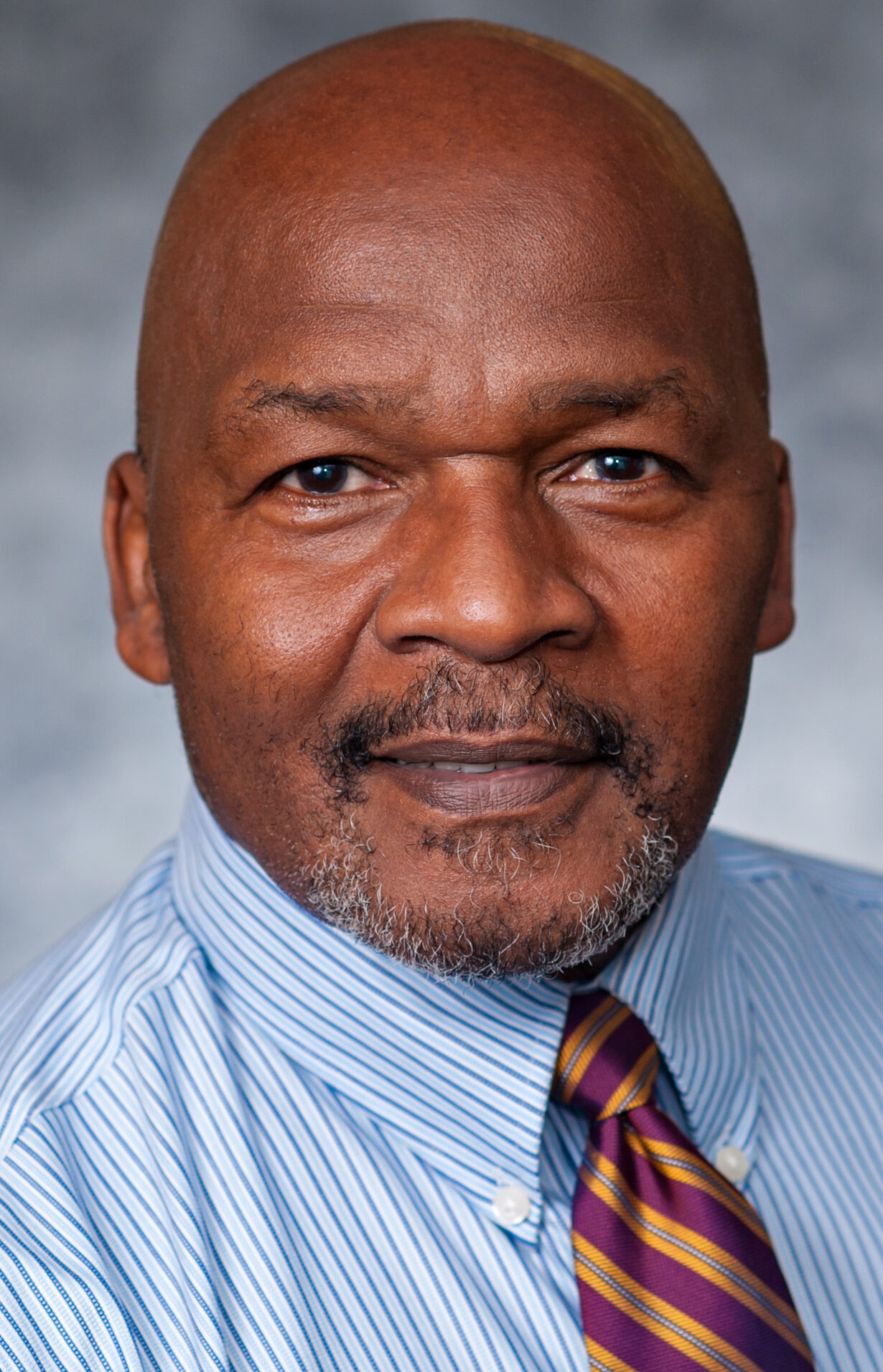 Watson (pictured), was honored in 2018 with the National Association of Black Journalists’ Ida B. Wells Award, “given to an individual who has made outstanding efforts to make newsrooms and news coverage more accurately reflect the diversity of the communities they serve.” He told Journal-isms that a minority on the search committee had opposed Fulwood’s appointment because he did not have an advanced degree.
Watson (pictured), was honored in 2018 with the National Association of Black Journalists’ Ida B. Wells Award, “given to an individual who has made outstanding efforts to make newsrooms and news coverage more accurately reflect the diversity of the communities they serve.” He told Journal-isms that a minority on the search committee had opposed Fulwood’s appointment because he did not have an advanced degree.
He noted in his message to faculty members that an editorial Friday in the student newspaper, The Eagle, said, the publication “examined faculty diversity around campus,” and “what we found was unsatisfactory. Although each school within AU has a disappointingly low number of faculty of color, some schools lack more than others.
“The biggest culprits? The School of Public Affairs and the School of Communication.”
Fulwood is among a tiny but growing number of African Americans leading majority-white journalism schools. They include Jelani Cobb at Columbia University, named last year, Charles Whitaker at the Medill School at Northwestern University, named in 2019, L. Battinto Batts, named in 2021 at the Walter Cronkite School of Journalism and Mass Communication, Arizona State University; and Kathleen McElroy, director of the School of Journalism at the University of Texas at Austin, named in 2018.
On Fulwood’s watch, the school attracted Natalie Hopkinson from Howard University and forged a partnership with Journal-isms, among other achievements.
At Journal-isms’ request, Watson listed others: “In the cash-strapped semester after Covid, Sam was able to scrape together unprecedented funding for faculty and graduate students to participate in the International Communication association’s 2022 conference in Paris.
“In 2022 Sam became a founding member of the board of the Law & Justice Journalism Project (LJJP), which is dedicated to improving crime reporting and understanding of the judicial system. LJJP provides a paid fellowship and mentoring for early journalists from across the country, and panel discussions open to anyone interested. Nine of the 16 fellows selected for the program were people of color.
“I would have assumed the program was ended with the arrest of Bill Bankman-Fried because he provided the money for the program. But one portion of the program was conducted as scheduled on May 1 of this year. The fellows are supposed to spend some time at AU this summer. I recall Sam telling me that the Bankman-Fried money was paid up front. I and AU’s investigative TV journalist had roles in the programs.”
- American University: Q&A with Incoming School of Communication Dean Sam Fulwood III (May 17, 2021)
- Dean Sam Fulwood welcomes the Journal-isms Roundtable to American University, with Dr. Julius Garvey (Feb. 6) video; column
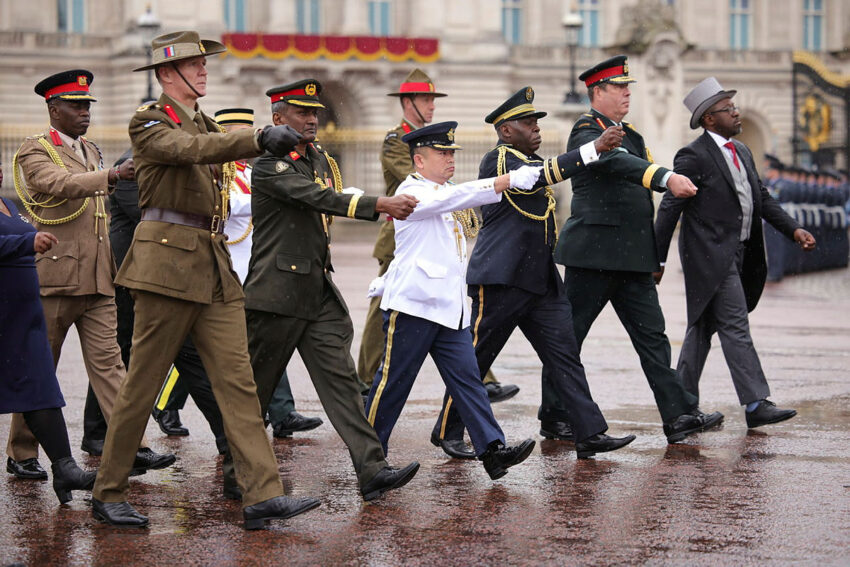
Many Ex-British Subjects Apathetic on Coronation
“When King Charles III is crowned on Saturday, soldiers carrying flags from the Bahamas, South Africa, Tuvalu and beyond will march alongside British troops in a spectacular military procession in honor of the monarch,” Sylvia Hui, John Myers Jr. and Krutika Pathi reported Friday for the Associated Press.
“For some, the scene will affirm the ties that bind Britain and its former colonies. But for many others in the Commonwealth, a group of nations mostly made up of places once claimed by the British Empire, Charles’ coronation is seen with apathy at best.
“In those countries, the first crowning of a British monarch in 70 years is an occasion to reflect on oppression and colonialism’s bloody past. The displays of pageantry in London will jar especially with growing calls in the Caribbean to sever all ties with the monarchy. . . .”
In South Africa, some “are calling for Britain to return the world’s largest diamond, known as the Star of Africa, which is set in the royal sceptre that King Charles III will hold,” Sisipho Skweyiya, Catherine Schenck and Thando Hlophe reported from Johannesburg Thursday for Reuters.
“The diamond, which weighs 530 carats, was discovered in South Africa in 1905 and presented to the British monarchy by the colonial government in the country, which was then under British rule.
“Now amid a global conversation about returning artwork and artefacts that were pillaged during colonial times, some South Africans are calling for the diamond to be brought back.
” ‘The diamond needs to come to South Africa. It needs to be a sign of our pride, our heritage and our culture,’ said Mothusi Kamanga, a lawyer and activist in Johannesburg who has promoted an online petition, which has gathered about 8,000 signatures, for the diamond to be returned.
” ‘I think generally the African people are starting to realise that to decolonise is not just to let people have certain freedoms, but it’s also to take back what has been expropriated from us. ‘ . . .”
- Jason Burke, the Guardian: ‘I feel very honoured’: South African soprano Pretty Yende sings at coronation
- David Conn, Aamna Mohdin and Maya Wolfe-Robinson, the Guardian: King Charles signals first explicit support for research into monarchy’s slavery ties (April 6)
- Carla Hall, Los Angeles Times: Pledge allegiance to Britain’s King Charles? I’ll pass on that part of the coronation
- Hassan Isilow, Anadolu Agency: Africans express mixed reactions about coronation of King Charles III
- Giorgia Tobiolo, Al Jazeera: Troubled histories: UK Caribbeans on King Charles and the royals
- The Voice, Britain: Bishop of Dover: ‘A diverse Coronation reflects a modern multicultural Britain’

‘Latino USA’ Tells Inside Story of Its 30 Years
‘On Friday, Futuro Media announced the launch of ‘Celebrating 30 Years of Latino USA,’ a campaign to commemorate the three decades that the Peabody Award-winning ‘Latino USA’ has been on the air,” the company announced. “Anchored by Pulitzer Prize-winning journalist Maria Hinojosa since 1993, ‘Latino USA’ is the longest-running public radio program produced from a Latino perspective.
“Today ‘Latino USA’ is a weekly, nationally syndicated public radio program and podcast distributed by PRX. At most recent count, the partnership has helped drive listenership of the radio program by approximately 50% since spring 2020. ‘Latino USA’ airs on more than 335 public media stations across the U.S. — including in each of the top 10 media markets — and the podcast is available free to audiences everywhere on-demand across all major podcast platforms.
“In preparation for our momentous 30th anniversary, we will showcase special episodes that reflect the power of our past stories on the culture, politics, achievements, identity, and social contributions of Latino communities across our country.
“We will open and close this anniversary celebration with two 1-hour special episodes. The first will be a media story focused on the history of ‘Latino USA.’ The second will be an immigration special, with Hinojosa’s signature ‘no te vayas’ nodding to the presidential election in 2024. . . .”

Latino Journalists to Be ‘Brown and Bougie’ Again
The first “Brown and Bougie” brunch, a four-hour D.C. affair a week ago that coincided with the annual White House Correspondents’ Dinner, was such a success the organizers plan to repeat it next year, according to Lizeth Ortega Luna of Solidarity Strategies, which calls itself “the largest minority-owned and operated public affairs and political consulting firm in the nation.”
Journal-isms asked for the who, what, why, where, when and how many. Here are her answers:
“What
“1st Annual Brown and Bougie Brunch 2023
“A brunch celebration to honor Latino journalists and the Congressional Hispanic Caucus.
“Who
“Chuck Rocha is the originator of the event idea and the man who coined the exceptional event name, ‘Brown and Bougie Brunch.’ Lizeth Ortega Luna, senior associate and director of Solidarity Strategies’ public affairs division organized Brown and Bougie Brunch.
“Together with the National Association of Hispanic Journalists, Sabrina Rodriguez, Adrian Carrasquillo, and Fin Gómez, Solidarity Strategies organized a 4-hour brunch to celebrate top Latino journalists from around the country.
 “Secretary Miguel Cardona [of the Department of Education], Administrator [Isabel] Guzman [of the Small Business Administration], Congresswoman Delia Ramirez [D-Ill.], and Congressman Joaquin Castro [D-Texas] (pictured) attended BBB to celebrate and honor our journalists.
“Secretary Miguel Cardona [of the Department of Education], Administrator [Isabel] Guzman [of the Small Business Administration], Congresswoman Delia Ramirez [D-Ill.], and Congressman Joaquin Castro [D-Texas] (pictured) attended BBB to celebrate and honor our journalists.
“Solidarity Strategies awarded Alicia Menendez and Fin Gómez the Champion for Diversity Award for their extraordinary commitment and excellence in representing and including Latinos in journalism.” Menendez is an MSNBC anchor and Gomez is CBS News political director.
“2023 Brown and Bougie Sponsors include:
“Live Nation Entertainment
“Solidarity Strategies
“Climate Power
“Altria
“Target
“TelevisaUnivision
“CCF [Call Center Finance]
“PNBWA [National Beer Wholesalers Association]
“General Motors
“Microsoft
“Ferox Strategies
“Pendulum Group
“Studio Center
“Why
“Chuck Rocha, Solidarity Strategies’ President and Founder, identified a lack of Latino events during the White House [Correspondents’] Dinner weekend and committed to changing the status quo. There had not been a Latino journalist celebration in the WHCA’s 109-year history until now.
“We honored Latino journalists for their tireless work to uphold democracy, inform the country, and share our communities’ stories when no one else will–even when they have to risk their lives to do so.
“When
“Saturday, April 29th, 10 AM – 2 PM at Paraiso [Mexican] Restaurant in Washington, D.C.
“How Many
“150 guests that include journalists, Members and staff of the Administration, the Congressional Hispanic Caucus members and staff, and sponsors.”
Ron Allen of NBC News reports on the final day of testimony in the rape allegation trial of Donald Trump, including former news anchor Carol Martin’s time on the witness stand. (Credit: YouTube)
Ex-Anchor Says She Regrets Advice She Gave Carroll
“One of the friends who says she can corroborate E. Jean Carroll’s rape allegation against former President Donald Trump was questioned about an email she sent Carroll in 2017, in which she said Trump must be stopped and asked her friend to “scheme,‘ ” Ashley Collman and Jacob Shamsian reported Thursday for Insider.
Carol Martin, the first African American female news anchor on WCBS-TV New York’s noon, 5 p.m. and 6 p.m. newscasts, “is one of the two friends that Carroll told about the alleged assault, which the longtime Elle advice columnist says happened in a Bergdorf Goodman dressing room in the mid-1990s. Carroll is also suing Trump for defamation, pointing to his comments on social media calling her story a ‘hoax and a lie.’ “
Martin, now retired, “also told jury about the day she learned her friend was ‘attacked’ by Trump.
“The two were working for the same TV network at the time, and Martin says she invited Carroll over to her house after work, and her friend confided in her about the incident.
“Martin’s recollection of the conversation was almost identical to what Carroll recalled on the stand earlier in the trial. She said that Carroll kept saying she had been attacked by Trump, and appeared ‘agitated’ and ‘anxious.’
“Martin said she had to ask Carroll to start from the beginning so that she could understand what happened.
“While Martin doesn’t remember Carroll using the word rape to describe what happened to her, she said her friend told her that she told another friend, Lisa Birnbach, about the incident, and that Birnbach told her she had been raped and should go to the police.
“Martin said Carroll expressed to her that she didn’t want to report the incident, and Martin said she agreed with her. Over the years, Martin said she’s repeatedly ‘questioned’ her decision to give that advice.
” ‘I’m not proud that’s what I told her,’ Martin said.
“Martin said she was testifying voluntarily, but that her decision to take part in the trial had nothing to do with her feelings about Trump, and all to do with supporting her friend.
” ‘I’m here because I want to reiterate and remember what my friend E. Jean Carroll told me 27 years ago. I believed it then and I believe it today,’ Martin said. . . .”
Mitchell Epner added for the Daily Beast, “After five days of presenting evidence, plaintiff E. Jean Carroll rested her rape case against former President Donald Trump Thursday. It was yet another bad day for Trump.”

Reporters Tell of Agonizing Decisions to Flee Sudan
“There was a debate about whether or not to leave the building,” Isma’il Kushkush, a Sudanese-American journalist based in the Washington, D.C., area, told NPR’s Leila Fadel.
“We did not think we would get a direct hit because the trajectory of the gunfire was parallel to the building. We could have been hit by stray bullets, but we were fearful that our soldiers might storm the building to take over the building or possibly be hit by a misguided missile strike. We were a few blocks away from the Republican Palace. We would hear the sounds of fire from jet fighters. So that was our major concern. . . .”
Mansee Khurana reported Wednesday for NPR, “More than 100,000 people have fled Sudan since the conflict between the Sudanese army and a paramilitary group known as Rapid Support Forces erupted. . . .
 “Kushkush (pictured) was in Sudan working on a reporting project and taking care of some family matters when full-on war broke out in Khartoum, the country’s capital. For eight days, he found himself trapped in a building. When food and other supplies began to run out, KushKush and 32 people other people he was trapped with — including children and the elderly — knew they had to leave.
“Kushkush (pictured) was in Sudan working on a reporting project and taking care of some family matters when full-on war broke out in Khartoum, the country’s capital. For eight days, he found himself trapped in a building. When food and other supplies began to run out, KushKush and 32 people other people he was trapped with — including children and the elderly — knew they had to leave.
“Getting out of the building was just the beginning of a terrifying ten-day journey to get out of Sudan, and across the border into Egypt. Eventually he arrived to safety, and reflected on the experience . . . .”
Separately, the BBC ran a piece from BBC Arabic reporter Mohamed Osman. Osman “has lived in Sudan for his entire life. When fighting broke out between rival military factions last month, he initially stayed to report on the conflict but in the end it became too dangerous,” the network explained. “He reflects on the difficult decision to leave his homeland and make the perilous overland journey to Egypt.”
Osman wrote, “As a journalist covering the conflict on the ground, conveying what is happening to the world is vital.
“But major difficulties such as the inability to move, poor internet and communication services, and most importantly, the safety of my family and myself, made this departure inevitable. . . .”
- Isma’il Kushkush, Smithsonian magazine: In the Land of Kush: A dazzling civilization flourished in Sudan nearly 5,000 years ago. Why was it forgotten? (September 2020)
- Mohamed Osman, BBC: Sudan conflict: ‘I’m drinking water from the River Nile’ (April 20)
- Sky News: Sudan: Local journalist Isma’il Kushkush explains the escalating violence in Sudan’s capital Kharkoum (April 15)
- Declan Walsh, New York Times: ‘Only Word for Them Is Heroes’: How 2 Students Rescued Dozens in Sudan
Short Takes
- Not enough upbeat news on television or on your app? PBS’ William Brangham reported “Why a woman says she met and forgave the man who shot and paralyzed her decades earlier” on Thursday for the “PBS NewsHour.”
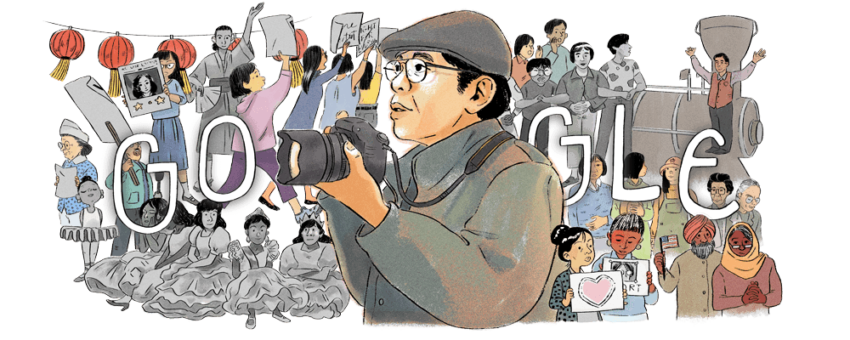
- “In honor of US Asian Pacific American Heritage Month, today’s Doodle celebrates the life and work of Corky Lee, Chinese American photographer, journalist, and activist whose photos recorded the diversity and nuances of the Asian Pacific American community often overlooked by mainstream media,” Google wrote Friday. “On this day in 1988, May 5th was proclaimed to be ‘Corky Lee Day’ in honor of his lifelong contributions to New York City’s communities. . . .”
 Kimberly Johnson (pictured), deputy chief news editor at The Wall Street Journal, has been named to lead the Journal’s team “to supercharge our coverage” of the 2024 election, Editor-in-Chief Emma Tucker messaged staff members on Tuesday. “Kimberly has a record of building and leading teams across the newsroom and in this expanded role, she will bring her sharp news [judgment] and digital prowess to what will be one of the most important stories of the next two years,” Tucker wrote. “The team will be made up of specialists in audience, data, graphics, pictures, and video as well as writers and editors. We will also have representatives from our colleagues in marketing and product as part of the team. They will work closely with the D.C. Bureau and our politics team led by Ben Pershing, who will bridge both teams.” Johnson led the Journal’s project on the enduring economic effects of the 1921 Tulsa Race Massacre, a finalist in last year’s Pulitzer Prizes.
Kimberly Johnson (pictured), deputy chief news editor at The Wall Street Journal, has been named to lead the Journal’s team “to supercharge our coverage” of the 2024 election, Editor-in-Chief Emma Tucker messaged staff members on Tuesday. “Kimberly has a record of building and leading teams across the newsroom and in this expanded role, she will bring her sharp news [judgment] and digital prowess to what will be one of the most important stories of the next two years,” Tucker wrote. “The team will be made up of specialists in audience, data, graphics, pictures, and video as well as writers and editors. We will also have representatives from our colleagues in marketing and product as part of the team. They will work closely with the D.C. Bureau and our politics team led by Ben Pershing, who will bridge both teams.” Johnson led the Journal’s project on the enduring economic effects of the 1921 Tulsa Race Massacre, a finalist in last year’s Pulitzer Prizes.

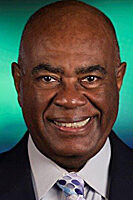 Gary C. Wordlaw (pictured), veteran television news manager last seen in this column as an executive at the ill-fated Black News Channel, has been named news director of Gray Television’s NBC affiliate WNDU in South Bend, Ind., Mark K. Miller reported Wednesday for TVNewsCheck. “He will be responsible for leading newsgathering efforts on all station platforms and begins his new role on May 22.” Last year, Ron Bartholomew, also African American, was named general manager of the station, and Gannett named Black journalist Ismail Turay Jr. as executive editor of the South Bend Tribune.
Gary C. Wordlaw (pictured), veteran television news manager last seen in this column as an executive at the ill-fated Black News Channel, has been named news director of Gray Television’s NBC affiliate WNDU in South Bend, Ind., Mark K. Miller reported Wednesday for TVNewsCheck. “He will be responsible for leading newsgathering efforts on all station platforms and begins his new role on May 22.” Last year, Ron Bartholomew, also African American, was named general manager of the station, and Gannett named Black journalist Ismail Turay Jr. as executive editor of the South Bend Tribune.
 “CNN promoted Laura Coates (pictured) to Chief Legal Analyst, the network announced Friday, crediting her for having ‘played a central role in the network’s extensive legal programming, serving as an anchor for CNN’s prime time programs, hosting impactful specials and a CNN Town Hall,’ “ Sarah Rumpf reported Friday for mediaite.com.
“CNN promoted Laura Coates (pictured) to Chief Legal Analyst, the network announced Friday, crediting her for having ‘played a central role in the network’s extensive legal programming, serving as an anchor for CNN’s prime time programs, hosting impactful specials and a CNN Town Hall,’ “ Sarah Rumpf reported Friday for mediaite.com.
- “Companies that receive taxpayer-funded federal contracts are supposed to be held to a higher standard, and they’re subject to audits by the Labor Department office charged with making sure contractors provide equal employment opportunities,” Will Evans and Jayme Fraser said in an email Saturday from Reveal and the Center for Investigative Reporting. Reveal and USA TODAY found that a majority of the billion-dollar-plus contractors objected to releasing their diversity data – and that includes at least a dozen companies that have paid to settle Labor Department findings of job discrimination over the last decade. Collectively, the companies with discrimination history and whose data are still secret are reaping at least $100 billion in public money. . . .”
- “Longtime Oakland A’s television announcer Glen Kuiper has been suspended indefinitely by NBC Sports California after he appeared to utter a racial epithet during the pregame show before Friday night’s game in Kansas City,” Laurence Miedema and Jon Becker reported Saturday for the East Bay Times. “Kuiper, who has been announcing A’s games on television for 18 years, will be off the air while the incident is reviewed, a spokesperson for the station confirmed Saturday. Kuiper was talking about the ‘phenomenal’ time he and broadcast partner Dallas Braden had while visiting the Negro Leagues Baseball Museum in Kansas City earlier in the day, but instead of saying ‘Negro Leagues,’ Kuiper seemed to say the n-word.” Mike Freeman column, USA Today Judge for yourself (Twitter)
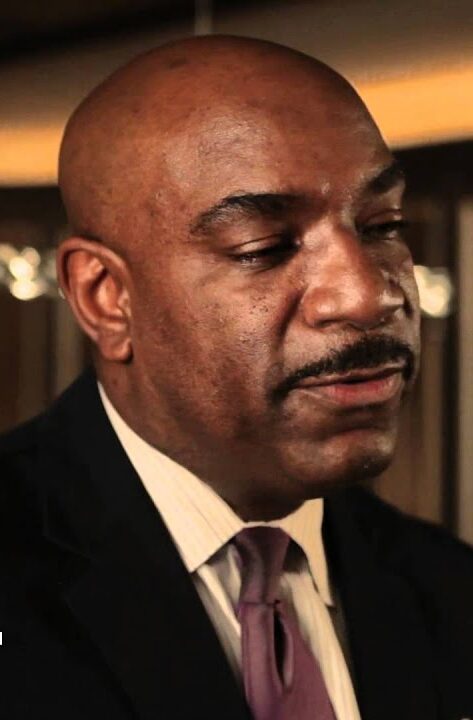 “Just a note to you field hands. I tried posting an article a few days ago and it was shot down by the gatekeepers at Google. Why? Because they thought that it was offensive. (I can assure you it was not),” Wayne Bennett (pictured) posted Wednesday on his Field Negro blog. “Those of you who know me know that I do not post offensive content. (At least not anymore.) I allow offensive comments, because I believe in free speech, but my posts are never offensive. The problem is that there are not a lot of folks at Google who look like I do, and they do not understand that . . . when I write the word it is not meant to be offensive. The fact is, most of the people who look (and think) like I do consider the phrase field a term of endearment. . . .”
“Just a note to you field hands. I tried posting an article a few days ago and it was shot down by the gatekeepers at Google. Why? Because they thought that it was offensive. (I can assure you it was not),” Wayne Bennett (pictured) posted Wednesday on his Field Negro blog. “Those of you who know me know that I do not post offensive content. (At least not anymore.) I allow offensive comments, because I believe in free speech, but my posts are never offensive. The problem is that there are not a lot of folks at Google who look like I do, and they do not understand that . . . when I write the word it is not meant to be offensive. The fact is, most of the people who look (and think) like I do consider the phrase field a term of endearment. . . .”
-
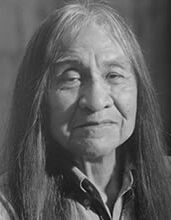 “On Thursday, May 11, WNYC Studios launches a new, 12-part season of More Perfect, the Supreme Court podcast series that brings the highest court of the land down to earth,” the New York public radio station announced by email. “The debut episode will dive into the religion debate that’s vexed the Court for the last several terms by telling the little-known story of Al Smith (pictured), a Native American man who was fired for ingesting peyote at a religious ceremony. His case set off a debate about when religion allows believers to sidestep the law – a question posed to the Court once again this term in a case about denying services to gay couples. (May 11). The second episode attempts to dive into the mind of Justice Clarence Thomas. Drawing on his speeches and writings – and interviews with people who have known him well – More Perfect traces some of the puzzling conclusions he reaches on the bench to unexpected origins: the ideas of Malcolm X, which he listened to on records in college. (May 18). . . . More Perfect is available at moreperfectpodcast.org and all other platforms where podcasts are available.”
“On Thursday, May 11, WNYC Studios launches a new, 12-part season of More Perfect, the Supreme Court podcast series that brings the highest court of the land down to earth,” the New York public radio station announced by email. “The debut episode will dive into the religion debate that’s vexed the Court for the last several terms by telling the little-known story of Al Smith (pictured), a Native American man who was fired for ingesting peyote at a religious ceremony. His case set off a debate about when religion allows believers to sidestep the law – a question posed to the Court once again this term in a case about denying services to gay couples. (May 11). The second episode attempts to dive into the mind of Justice Clarence Thomas. Drawing on his speeches and writings – and interviews with people who have known him well – More Perfect traces some of the puzzling conclusions he reaches on the bench to unexpected origins: the ideas of Malcolm X, which he listened to on records in college. (May 18). . . . More Perfect is available at moreperfectpodcast.org and all other platforms where podcasts are available.”
 “Latino Media Network, the Hispanic media company that launched last year with $80 million in funding, is bringing Sylvia Banderas Coffinet (pictured), formerly general manager at Vox Media, on as its CEO to begin its commercial business push,” Sara Fischer reported Tuesday for Axios. “Why it matters: The company used most of the cash it raised to acquire 18 Hispanic radio stations from TelevisaUnivision. Now that the deal has received regulatory approval, it will use its remaining funds to turn operational control of the stations to its management team, led by Banderas Coffinet, and revamp them. . . .”
“Latino Media Network, the Hispanic media company that launched last year with $80 million in funding, is bringing Sylvia Banderas Coffinet (pictured), formerly general manager at Vox Media, on as its CEO to begin its commercial business push,” Sara Fischer reported Tuesday for Axios. “Why it matters: The company used most of the cash it raised to acquire 18 Hispanic radio stations from TelevisaUnivision. Now that the deal has received regulatory approval, it will use its remaining funds to turn operational control of the stations to its management team, led by Banderas Coffinet, and revamp them. . . .”
 “A high-profile woman journalist in the Dominican Republic has been targeted with NSO Group’s Pegasus spyware, in the first confirmed case in the country, Amnesty International reveals in a new investigation published on World Press Freedom Day,” Amnesty announced Tuesday. Analysis by Amnesty International’s Security Lab confirmed that a mobile device belonging to Nuria Piera (pictured) was targeted and infected with Pegasus, which enables full and unrestricted access to a device, three times between 2020 and 2021. Piera is an investigative journalist who has focused on issues of corruption and impunity in the Dominican Republic throughout her decades-long career. The latest discovery means there are now at least 18 countries, where it has been confirmed with forensics that journalists were targeted with spyware, though the actual scale of this abuse of surveillance technology is likely to be much higher. . . .”
“A high-profile woman journalist in the Dominican Republic has been targeted with NSO Group’s Pegasus spyware, in the first confirmed case in the country, Amnesty International reveals in a new investigation published on World Press Freedom Day,” Amnesty announced Tuesday. Analysis by Amnesty International’s Security Lab confirmed that a mobile device belonging to Nuria Piera (pictured) was targeted and infected with Pegasus, which enables full and unrestricted access to a device, three times between 2020 and 2021. Piera is an investigative journalist who has focused on issues of corruption and impunity in the Dominican Republic throughout her decades-long career. The latest discovery means there are now at least 18 countries, where it has been confirmed with forensics that journalists were targeted with spyware, though the actual scale of this abuse of surveillance technology is likely to be much higher. . . .”
- “Reporters Without Borders (RSF) has coordinated an open letter by 30 human rights organisations, journalists’ organizations and media outlets calling on the authorities in Mali and Burkina Faso as well as regional and international organizations to end a wave of press freedom violations,” the press freedom group announced Wednesday. It also said, “What with calls for journalists and opinion leaders to be murdered, threats and intimidation against the national press, grotesquely fabricated accusations against journalists, the suspension of local broadcasting by French international news outlets RFI and France 24, and the expulsion of reporters with the French newspapers Libération and Le Monde – the threats to freedom of expression and press freedom are very worrying in Burkina Faso. . . .”
- “The year 2022 has been the most violent year for the press in the Latin American region in the last five years, according to the Sombra report [Shadow Report] by the Red Voces del Sur [Voices of the South Network or VDS, by its Spanish acronym],” Katherine Pennacchio and André Duchiade reported Thursday for LatAm Journalism Review.
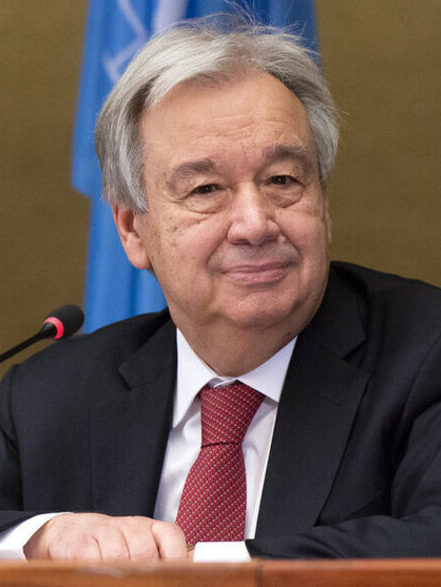 “The United Nations chief warned on the eve of World Press Freedom Day that the media is under attack in every corner of the world and urged all nations to stop the targeting of truth and those who report it,“ Edith M. Lederer reported Tuesday for the Associated Press. “Secretary-General Antonio Guterres (pictured) called the 50% increase in the killing of media workers in 2022 ‘unbelievable,’ stressing that freedom of the press ‘is the foundation of democracy and justice’ and it is under threat. At least 67 media workers were killed in 2022. In addition, digital platforms and social media have made it easier for extremists to push false narratives and harass journalists. . . .”
“The United Nations chief warned on the eve of World Press Freedom Day that the media is under attack in every corner of the world and urged all nations to stop the targeting of truth and those who report it,“ Edith M. Lederer reported Tuesday for the Associated Press. “Secretary-General Antonio Guterres (pictured) called the 50% increase in the killing of media workers in 2022 ‘unbelievable,’ stressing that freedom of the press ‘is the foundation of democracy and justice’ and it is under threat. At least 67 media workers were killed in 2022. In addition, digital platforms and social media have made it easier for extremists to push false narratives and harass journalists. . . .”
‘[btnsx id=”5768″]
To subscribe at no cost, please send an email to journal-isms+subscribe@groups.io and say who you are.
Facebook users: “Like” “Richard Prince’s Journal-isms” on Facebook.
Follow Richard Prince on Twitter @princeeditor
Richard Prince’s Journal-isms originates from Washington. It began in print before most of us knew what the internet was, and it would like to be referred to as a “column.” Any views expressed in the column are those of the person or organization quoted and not those of any other entity. Send tips, comments and concerns to Richard Prince at journal-isms+owner@
View previous columns (after Feb. 13, 2016).
View previous columns (before Feb. 13, 2016)
- Diversity’s Greatest Hits, 2018 (Jan. 4, 2019)
- Book Notes: Is Taking a Knee Really All That? (Dec. 20, 2018)
- Book Notes: Challenging ’45’ and Proudly Telling the Story (Dec. 18, 2018)
- Book Notes: Get Down With the Legends! (Dec. 11, 2018)
- Journalist Richard Prince w/Joe Madison (Sirius XM, April 18, 2018) (podcast)
- Richard Prince (journalist) (Wikipedia entry)
- February 2018 Podcast: Richard “Dick” Prince on the need for newsroom diversity (Gabriel Greschler, Student Press Law Center, Feb. 26, 2018)
- Diversity’s Greatest Hits, 2017 — Where Will They Take Us in the Year Ahead?
- Book Notes: Best Sellers, Uncovered Treasures, Overlooked History (Dec. 19, 2017)
- An advocate for diversity in the media is still pressing for representation, (Courtland Milloy, Washington Post, Nov. 28, 2017)
- Morgan Global Journalism Review: Journal-isms Journeys On (Aug. 31, 2017)
- Diversity’s Greatest Hits, 2016
- Book Notes: 16 Writers Dish About ‘Chelle,’ the First Lady
- Book Notes: From Coretta to Barack, and in Search of the Godfather
- Journal-isms’ Richard Prince Wants Your Ideas (FishbowlDC, Feb. 26, 2016)
- “JOURNAL-ISMS” IS LATEST TO BEAR BRUNT OF INDUSTRY’S ECONOMIC WOES (Feb. 19, 2016)
- Richard Prince with Charlayne Hunter-Gault, “PBS NewsHour,” “What stagnant diversity means for America’s newsrooms” (Dec. 15, 2015)
- Book Notes: Journalists Follow Their Passions
- Book Notes: Journalists Who Rocked Their World
- Book Notes: Hands Up! Read This!
- Book Notes: New Cosby Bio Looks Like a Best-Seller
- Journo-diversity advocate turns attention to Ezra Klein project (Erik Wemple, Washington Post, March 5, 2014)

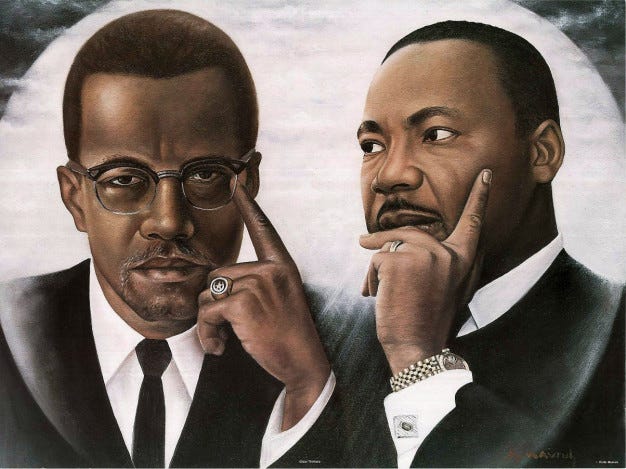
1 comment